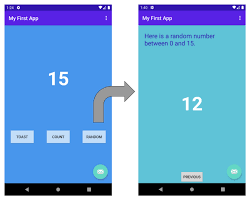Java Software Development Services: Empowering Businesses with Robust Solutions
In today’s rapidly evolving digital landscape, businesses need reliable and efficient software solutions to stay competitive. Java, a versatile and powerful programming language, has emerged as a popular choice for developing robust and scalable applications. With its extensive libraries, cross-platform compatibility, and strong community support, Java offers businesses the tools they need to build cutting-edge software solutions.
Java software development services encompass a wide range of offerings designed to cater to the unique needs of businesses across various industries. From custom application development to enterprise software integration, Java services provide the foundation for building secure, high-performance applications that can handle complex business processes.
One of the key advantages of Java software development is its platform independence. Java applications can run on any operating system or device with a Java Virtual Machine (JVM), making them highly flexible and accessible. This characteristic allows businesses to reach a broader audience and deploy their solutions across multiple platforms seamlessly.
Moreover, Java’s extensive libraries and frameworks enable developers to accelerate the development process by leveraging pre-built components. These libraries cover diverse functionalities such as database connectivity, user interface design, networking capabilities, and more. By utilizing these resources, developers can focus on building core business logic rather than reinventing the wheel.
Security is another critical aspect that makes Java an attractive choice for businesses. The language incorporates robust security features at both the language level and through its standard libraries. From built-in memory management mechanisms to advanced encryption algorithms, Java provides a secure environment for developing applications that handle sensitive data.
Java’s scalability is yet another advantage that makes it suitable for businesses of all sizes. Whether you are a startup experiencing rapid growth or an established enterprise expanding your operations, Java can accommodate your evolving needs. Its ability to handle large workloads efficiently ensures that your application will continue performing optimally even under heavy usage.
Additionally, the vast community support surrounding Java is invaluable for businesses seeking assistance or guidance. The Java community is known for its active participation, continuous improvement, and sharing of knowledge. This means that developers have access to a wealth of resources, forums, and libraries that can help solve problems and streamline development processes.
When it comes to outsourcing Java software development services, businesses can tap into the expertise of specialized development companies. These firms possess in-depth knowledge of Java’s intricacies and best practices to deliver tailored solutions that align with specific business requirements. By partnering with experienced Java developers, businesses can ensure the successful implementation of their projects while focusing on core competencies.
In conclusion, Java software development services offer businesses the opportunity to harness the power of this versatile programming language. With its platform independence, extensive libraries, robust security features, scalability, and vibrant community support, Java empowers businesses to build innovative applications that drive growth and success. Whether you need a custom application or enterprise-level integration solutions, Java provides a solid foundation for your software development needs.
8 Essential Tips for Choosing a Java Software Development Service Provider
- Make sure to research the company you are considering for Java software development services, including any customer reviews.
- Be sure to understand the scope of the project before signing a contract with a Java software development service provider.
- Ask for references from past clients and contact them to learn more about their experience with the service provider.
- Ensure that your chosen Java software development service provider has experience in developing similar projects and applications as yours.
- Ask about the process and timeline for completing your project, and make sure it is reasonable and achievable within your budget and timeframe expectations.
- Make sure there is clear communication between you and the service provider about expectations, deadlines, progress updates, etc., throughout the development cycle of your project or application.
- Consider using an agile methodology when working with a Java software development service provider so that changes can be made quickly if needed during the course of development process without compromising quality or timelines too much..
- Ensure that all code produced by your chosen Java software developer is tested thoroughly for bugs before being released into production environment
Make sure to research the company you are considering for Java software development services, including any customer reviews.
When it comes to selecting a company for Java software development services, conducting thorough research is essential. It’s crucial to choose a reliable and reputable partner that can meet your specific needs and deliver high-quality solutions. One effective way to gather insights about a company is by reviewing customer feedback and testimonials.
Customer reviews provide valuable firsthand experiences from those who have previously engaged with the company’s services. By exploring these reviews, you can gain valuable insights into the company’s strengths, weaknesses, and overall customer satisfaction levels. This information can help you make an informed decision when selecting a Java software development service provider.
While researching customer reviews, pay attention to factors such as project delivery timelines, communication effectiveness, code quality, adherence to requirements, and post-development support. Look for consistent positive feedback in these areas as they are crucial for successful collaboration.
Additionally, consider the reputation of the company within the industry. A well-established company with a strong track record is more likely to deliver reliable services compared to relatively unknown entities. Look for indicators of professionalism, expertise in Java development, and a history of successful project deliveries.
It’s also worth exploring the company’s portfolio or case studies showcasing their previous work in Java software development. This will give you an idea of their expertise in handling projects similar to yours and their ability to deliver results that align with your expectations.
Apart from customer reviews and portfolio evaluation, other factors such as certifications or partnerships with recognized organizations can also indicate the credibility of a Java software development service provider.
Remember that investing time in researching potential companies will help you make an informed decision that aligns with your business goals. By thoroughly evaluating customer reviews and considering other relevant factors, you can select a trusted partner for your Java software development needs—a partner who will contribute significantly to the success of your projects.
Be sure to understand the scope of the project before signing a contract with a Java software development service provider.
When considering Java software development services, it is crucial to have a clear understanding of the project’s scope before signing a contract with a service provider. This tip holds immense importance as it ensures that both parties are on the same page and minimizes any potential misunderstandings or setbacks during the development process.
Understanding the scope of a project involves defining its objectives, requirements, deliverables, and timeline. It is essential to clearly communicate your expectations and goals to the Java software development service provider so that they can accurately assess whether they have the necessary expertise and resources to meet your needs.
By discussing the project’s scope in detail, you can identify any gaps in your requirements or potential challenges that may arise during development. This allows both parties to address these issues upfront and make necessary adjustments to ensure a smooth and successful collaboration.
Moreover, having a well-defined project scope helps in establishing realistic timelines and budget estimates. It enables you to set clear milestones and track progress throughout the development process. With a comprehensive understanding of what is expected, you can also better evaluate proposals from different service providers and choose the one that aligns best with your project’s requirements.
In addition to defining the project scope, it is also advisable to include provisions for change management in the contract. As projects evolve, there may be a need for adjustments or additions to the original scope. Having mechanisms in place for handling such changes ensures that both parties are prepared for any modifications that may arise during development.
In conclusion, before finalizing an agreement with a Java software development service provider, take the time to thoroughly understand the scope of your project. Clearly define objectives, requirements, deliverables, and timeline while discussing potential challenges or gaps in detail. This proactive approach will help establish realistic expectations, minimize misunderstandings, and pave the way for a successful partnership between you and your chosen service provider.
Ask for references from past clients and contact them to learn more about their experience with the service provider.
When it comes to choosing a Java software development service provider, one essential tip is to ask for references from past clients and take the time to contact them. This step can provide valuable insights into the service provider’s capabilities, reliability, and overall customer satisfaction.
References serve as a testament to the service provider’s track record and can help you gauge their expertise and professionalism. By reaching out to past clients, you can gain firsthand information about their experience working with the Java development company.
When contacting references, consider asking specific questions related to their project. Inquire about the quality of the delivered software, adherence to deadlines, communication during the development process, and any post-development support provided. These questions will give you a comprehensive understanding of how the service provider performs throughout the entire project lifecycle.
Listening to past clients’ experiences can also shed light on any challenges or obstacles encountered during the collaboration. This insight allows you to assess how well the service provider handles unexpected situations and whether they proactively work towards finding solutions.
Furthermore, contacting references enables you to evaluate if the Java software development company aligns with your business objectives and values. The feedback received from previous clients can help you determine if they have experience in your industry or have successfully completed projects similar to yours.
It is important to remember that while contacting references is crucial, it should not be the sole factor in your decision-making process. It should be considered alongside other aspects such as technical expertise, project management capabilities, pricing structure, and overall reputation in the industry.
In conclusion, asking for references from past clients and taking the time to contact them is an invaluable tip when selecting a Java software development service provider. By doing so, you gain insights into their performance, reliability, and client satisfaction levels. This information will assist you in making an informed decision that aligns with your business goals and ensures a successful partnership for your software development needs.
Ensure that your chosen Java software development service provider has experience in developing similar projects and applications as yours.
When it comes to choosing a Java software development service provider, one crucial tip is to ensure that they have experience in developing projects and applications similar to yours. This factor can greatly impact the success and efficiency of your software development journey.
Having experience in similar projects means that the service provider is familiar with the specific challenges and requirements that your industry or niche demands. They have likely encountered similar hurdles and found effective solutions, which can save you time and resources in the long run.
By opting for a service provider with relevant experience, you can benefit from their domain knowledge and expertise. They will understand the intricacies of your industry, its regulations, and any specific functionalities or integrations required. This understanding allows them to provide valuable insights, make informed decisions during development, and deliver a tailored solution that meets your unique needs.
Furthermore, experienced developers are well-versed in best practices and industry standards. They are aware of the latest trends, technologies, and frameworks within the Java ecosystem. This knowledge ensures that your application is built using efficient coding practices, follows security protocols, and incorporates scalability for future growth.
To ascertain whether a Java software development service provider has relevant experience, consider reviewing their portfolio or case studies. Look for projects similar in scope or complexity to yours. Assess their track record of successfully delivering projects within deadlines while maintaining quality standards.
Additionally, don’t hesitate to ask for client references or testimonials. Speaking with previous clients who had similar project requirements can provide valuable insights into the service provider’s capabilities, communication skills, and overall satisfaction levels.
Remember that experience alone may not be sufficient; it should be complemented by effective communication and collaboration skills. Ensure that the service provider actively listens to your requirements, understands your vision, and communicates openly throughout the development process.
In conclusion, when selecting a Java software development service provider for your project or application needs, prioritize their experience in developing similar projects. This factor demonstrates their understanding of your industry, their ability to tackle challenges specific to your niche, and their familiarity with relevant technologies. By choosing an experienced provider, you increase the likelihood of a successful and efficient software development journey tailored to your business requirements.
Ask about the process and timeline for completing your project, and make sure it is reasonable and achievable within your budget and timeframe expectations.
When it comes to embarking on a Java software development project, one of the key factors to consider is the process and timeline for completing the project. It is essential to have a clear understanding of how the development team plans to execute your project and whether it aligns with your budget and timeframe expectations.
Before diving into any project, it is crucial to communicate your requirements and objectives clearly with the development team. This helps them understand your vision and develop a roadmap for the project. During this initial discussion, don’t hesitate to ask questions about their development process, methodologies, and tools they plan to utilize.
Inquire about the estimated timeline for completing different stages of the project. A reliable development team will provide you with a realistic timeline that takes into account various factors such as complexity, resources available, and potential challenges. It’s important to remember that rushing through a project may compromise its quality, so be wary of overly optimistic timelines.
Additionally, discuss your budget constraints openly with the development team. A professional team will work with you to find a balance between your budget limitations and project goals. They should be transparent about any potential additional costs or unforeseen expenses that may arise during the development process.
By asking about the process and timeline for completing your Java software development project, you ensure that both parties are on the same page from the beginning. It allows you to assess whether their proposed plan aligns with your expectations in terms of delivery timeframes and cost-effectiveness.
Remember that an achievable timeline is crucial for successful software development. Rushing through a project may lead to subpar results or even failure. On the other hand, an excessively long timeline may not be feasible for your business needs or market demands. Finding a balance between speed and quality is key.
In conclusion, open communication regarding process, timeline, and budget is vital when engaging in Java software development services. By asking questions upfront and ensuring that both parties have realistic expectations regarding project completion, you set the stage for a successful collaboration. A transparent and achievable plan will help you achieve your software development goals within your desired timeframe and budget constraints.
Make sure there is clear communication between you and the service provider about expectations, deadlines, progress updates, etc., throughout the development cycle of your project or application.
Clear Communication: The Key to Successful Java Software Development Services
When it comes to outsourcing Java software development services, clear communication between you and the service provider is crucial for a successful partnership. Effective communication ensures that both parties are on the same page regarding expectations, deadlines, progress updates, and any other important aspects throughout the development cycle of your project or application.
Setting clear expectations from the beginning is essential. Clearly define your project requirements, objectives, and desired outcomes. This will help the service provider understand your vision and deliver a solution that meets your specific needs. Be as detailed as possible about functionalities, user experience, design preferences, and any other relevant factors.
Establishing realistic deadlines is equally important. Discuss timelines with the service provider and ensure they align with your project goals. Keep in mind that rushing through development can compromise quality, so find a balance that allows for efficient work without sacrificing the end result.
Regular progress updates are vital to keep track of the project’s advancement. Agree upon a communication schedule with the service provider to receive updates on their progress. This could be in the form of weekly or bi-weekly meetings or written reports. These updates will help you stay informed about any challenges encountered during development and allow you to provide timely feedback or make necessary adjustments.
Maintaining open lines of communication throughout the development cycle fosters transparency and trust between you and the service provider. Encourage regular dialogue where both parties can freely exchange ideas, ask questions, and address concerns. Promptly respond to queries from the service provider to avoid delays or misunderstandings.
In addition to regular updates, consider organizing milestone reviews at significant stages of development. These reviews allow you to evaluate progress against predefined criteria and make adjustments if needed before moving forward. It’s an opportunity for both you and the service provider to ensure that expectations are being met and align any necessary course corrections.
Remember that effective communication is a two-way street. Actively participate in discussions, provide timely feedback, and be open to suggestions from the service provider. Collaboration and a willingness to adapt can lead to better outcomes and a stronger final product.
In conclusion, clear communication is vital when engaging in Java software development services. By establishing clear expectations, setting realistic deadlines, maintaining regular progress updates, and fostering open dialogue throughout the development cycle, you can ensure a successful partnership with your service provider. Effective communication will help align your vision with the final product and contribute to the overall success of your project or application.
Consider using an agile methodology when working with a Java software development service provider so that changes can be made quickly if needed during the course of development process without compromising quality or timelines too much..
Unlocking Flexibility and Efficiency: Agile Methodology in Java Software Development Services
When embarking on a software development project with a Java service provider, it is essential to consider utilizing an agile methodology. Agile methodologies, such as Scrum or Kanban, offer a flexible and iterative approach to development that can greatly enhance the efficiency and adaptability of the process.
One of the key advantages of adopting an agile methodology is the ability to accommodate changes seamlessly. In traditional software development approaches, making modifications mid-project can be time-consuming and may disrupt the entire development process. However, with an agile approach, changes can be incorporated quickly without compromising quality or timelines significantly.
In Java software development services, where requirements and priorities may evolve over time, agility becomes even more critical. By breaking down the project into smaller iterations called sprints, an agile methodology allows for regular feedback and adjustments. This iterative nature ensures that any necessary changes can be addressed promptly during the course of development.
Moreover, using an agile methodology fosters collaboration between the client and the service provider. Through frequent communication and involvement in each sprint’s planning and review sessions, clients have greater visibility into the progress of their project. This transparency enables them to provide feedback, suggest modifications, or even reprioritize features based on evolving business needs.
Agile methodologies also promote better risk management in Java software development projects. By delivering functional increments at regular intervals, potential issues or challenges can be identified early on. This early detection allows for timely mitigation strategies to be implemented before they become major roadblocks. As a result, projects are more likely to stay on track while minimizing unexpected surprises along the way.
Furthermore, an agile approach encourages continuous improvement throughout the development process. The regular retrospective sessions at the end of each sprint provide an opportunity for both clients and service providers to reflect on what went well and identify areas for enhancement. This focus on continuous learning ensures that future sprints benefit from lessons learned and that the final product is of the highest quality.
In summary, adopting an agile methodology when working with a Java software development service provider can bring numerous benefits. The ability to accommodate changes quickly, maintain quality and timelines, foster collaboration, manage risks effectively, and promote continuous improvement are just a few advantages of this approach. By embracing agility in the development process, businesses can unlock flexibility and efficiency while ensuring the successful delivery of their Java software projects.
Ensure that all code produced by your chosen Java software developer is tested thoroughly for bugs before being released into production environment
Ensuring Thorough Testing: The Key to Successful Java Software Development
In the world of Java software development, one crucial tip stands out among the rest: thorough testing before releasing code into a production environment. This practice plays a vital role in delivering high-quality applications that are reliable, secure, and efficient.
When it comes to software development, bugs are an inevitable part of the process. However, identifying and fixing these bugs before they reach the production environment is essential to prevent any potential issues or disruptions for end-users. Thorough testing helps catch these bugs early on, ensuring that the final product meets the desired standards of functionality and performance.
A skilled Java software developer understands the significance of comprehensive testing. They employ various testing methodologies such as unit testing, integration testing, and system testing to cover different aspects of the application’s functionality. By conducting extensive tests at each stage of development, developers can identify and resolve issues promptly, minimizing any potential risks.
Unit testing focuses on verifying individual components or units of code to ensure they function as intended. This level of testing helps catch errors at a granular level and allows developers to rectify them swiftly. Integration testing ensures that different modules or components work harmoniously together within the application. It identifies any conflicts or inconsistencies between various parts of the codebase.
System testing takes a broader perspective by evaluating how well the entire application performs as a whole. This type of testing simulates real-world scenarios and user interactions to validate the system’s behavior under different conditions. By subjecting the application to rigorous tests that mimic real-life usage scenarios, developers can uncover potential vulnerabilities or performance bottlenecks before release.
Thoroughly tested code brings numerous benefits beyond just bug detection. It instills confidence in both developers and end-users alike by ensuring that the application functions reliably in its intended environment. Robustly tested code reduces the likelihood of unexpected crashes or failures and enhances overall user experience.
Moreover, investing time and effort into testing early on in the development process can save significant resources in the long run. Identifying and fixing bugs during the development phase is generally more cost-effective than addressing them post-release. It helps avoid potential reputational damage, customer dissatisfaction, and costly emergency fixes.
To ensure that your chosen Java software developer follows this best practice, establish clear expectations regarding testing during the project planning phase. Emphasize the importance of thorough testing and encourage open communication between developers and quality assurance teams.
In conclusion, thorough testing is a fundamental aspect of successful Java software development. By prioritizing comprehensive testing throughout the development lifecycle, businesses can deliver high-quality applications that meet user expectations. From unit testing to system-level evaluations, every step of the testing process plays a crucial role in minimizing bugs and ensuring a smooth transition to the production environment. Remember, investing in robust testing practices ultimately leads to more reliable and efficient software solutions.




